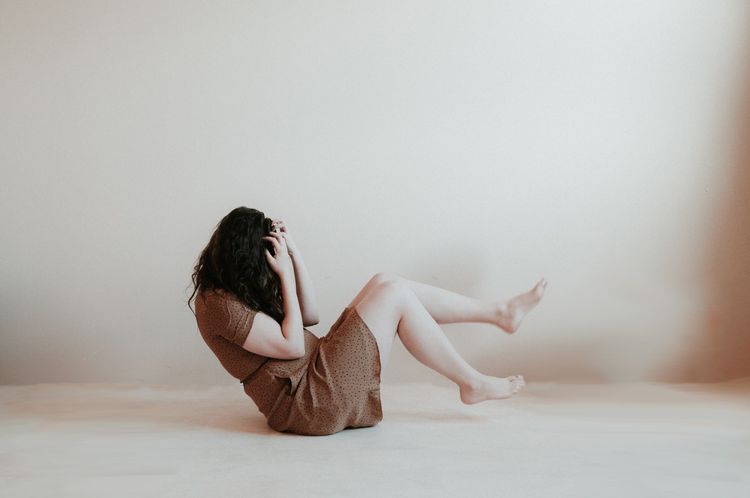During the college years, the perfect storm for anxiety to the surface can be created by a mix of scholarly pressure, moving away from home, unfamiliar social circumstances, and financial concerns.
College Makes Me Anxious
Many things that make you eager to start college might also make you anxious. The fact is, you’re not by yourself. It’s relatively typical for college students to experience anxiety.
In a 2018 American College Health Association survey, 63% of college students in the US reported having excessive anxiety, and 23% said they had a mental health professional diagnose them or treat them for anxiety.
Students sometimes experience overwhelming anxiety during college because it is so new and unlike anything they have ever experienced in their lives. These challenges are compounded by their overburdened minds.
How to Get Rid of College Anxiety
Most college students experience stress at some point during their studies; it’s just a fact of life. While experiencing stress in your life is expected and even inevitable, you have some influence over it. Use these strategies to learn how to manage stress and unwind when it becomes too much.
Take a Break and Relax
When was the last time you had some alone time? Take a moment to reflect. College students hardly ever have their own personal place. There is a possibility that you will share everything you do during a typical day, including your room, bathrooms, classrooms, dining halls, gyms, bookshops, and libraries.
Finding a few minutes of solitude—free of cell phones, roommates, and crowds—might be your need. Stress can be significantly reduced by taking a brief break from the hectic academic environment.
Do Not Stress Over Being Stressed
When you’re worried, you feel on edge and as though everything is barely holding together. Keep your self-esteem up by being kind to yourself. It’s all natural, and the best way to manage stress is to refrain from being more agitated than you already are. Recognize when you’re stressed and devise a plan for handling it. Concentrating on it, particularly if you don’t do something about it, can only make things seem worse.
Get Some Rest
Your sleep routine is likely far from optimal if you’re in college. More sleep can aid in mental renewal, rebalancing, and refocusing. This can be taking a little nap, going to bed early, or committing to a regular sleeping routine. Sometimes it’s just one restful night’s sleep.
Take a Social Break
Have you been working long hours on that English essay for the past few days? You may be experiencing stress due to your excessive attention to detail. Remember that just like a muscle, your brain requires rest repeatedly!
Watch a movie as a break or take a group of buddies and go dancing. Maintaining your social life while in college is crucial, so don’t be reluctant to do so when you’re feeling overwhelmed. You never know when you’ll need it most.

How to Deal With Test Anxiety in College
Test anxiety can interrupt your ability to study efficiently days before an exam. It might also show up the evening before an exam or as soon as you enter the classroom. Here are effective methods for controlling test-related anxiety during the academic year.
Develop Productive Study Habits
A late-night study session the night before an exam and showing up to class unprepared for anything might make you feel uneasy and unprepared. Concentrating on effective study methods can create healthier habits and make you feel more prepared for exams.
Target Unfounded, False Thoughts
Unwanted, intrusive thoughts plague more than six million Americans. These may include erroneous beliefs like “I’ll never be able to pass this exam” or “Everyone in my study group thinks I’m an idiot” for college students. Such ideas can easily develop into test anxiety.
Though they frequently have little to no basis in reality, intrusive thoughts have the power to dominate our thinking. Identifying these ideas as invasive and allowing them to flow through your mind without paying attention are some techniques that the ADAA advises.
Social Anxiety in College
The hallmark of social anxiety disorder is the dread of being negatively viewed and judged by others in social circumstances. The fear of embarrassment or criticism brings much misery and distress. The signs include behavioral, cognitive, and bodily manifestations, including blushing and trembling (e.g., avoiding social events).
Many students see college as more than just a place to learn. It’s also a great time to make new friends, attend parties, and experience new things. These situations, however, are less thrilling if you have a social anxiety disorder. Social anxiety can hinder college students’ experiences and present new difficulties.
The first thing to understand about having social anxiety while attending college is that you are not alone! According to data from one study, 25.8% of college students experience social anxiety. Those are:
- 47.2 percent displayed modest signs of social anxiety
- 42.3 percent displayed symptoms of mild social anxiety.
- 10.5 percent of people showed moderate to severe symptoms of social anxiety.
We can assist you in identifying the underlying cause of your anxiety and suggest the most effective anxiety treatment plan for you. If you need anxiety therapy in Boston, call or come by our office to schedule a consultation.



